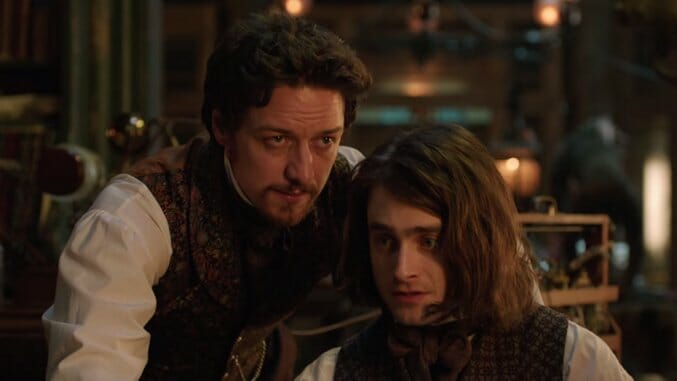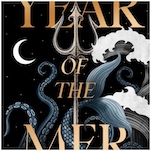Victor Frankenstein

The most important thing one should probably be keeping in mind while watching Victor Frankenstein is that the film is called Victor Frankenstein. Not The Frankenstein Monster Lurch Hour, nor Frankenstein’s Monster: Master of CGI, but Victor Frankenstein. The film’s title immediately informs us that this is a story not about ghoulish, undead monsters but thoroughly human ones, albeit ones that aren’t particularly well-characterized. And that’s a fairly important distinction that many critics and audience members will likely miss.
Regardless, this action-horror-buddy-adventure-dramedy from director Paul McGuigan and wunderkid screenwriter Max Landis is an odd film, and one that defies easy and immediate categorization. It manages to combine gothic visuals with a Lethal Weapon or Point Break buddy duo dynamic, light comedy, occasional jump scares and an incredibly tacked-on romantic subplot to form a final product that is cursory, but oddly entertaining. It’s popcorn cinema that is happy to fuse the tropes of multiple genres, much in the same way that the creature itself is stitched together.
The one thing holding those stitches together are the two great leads—James McAvoy as Victor Frankenstein and Daniel Radcliffe as the viewpoint character, “hunchbacked” Igor. I use the air quotes because it’s immediately revealed that the “hump” is actually nothing more than a disgustingly gigantic abscess, which makes for a gross and darkly humorous treatment. Radcliffe plays the part in a wide-eyed daze, a former circus freak thrust into a life of new opportunities and chances to apply the intelligence that had previously been his secret shame. He’s conned into the service of Frankenstein via the gothic version of a Horatio Alger promise—work for me, and we’ll change the world.
Which brings us to title character McAvoy, who is the best thing about the film. His performance is truly deranged; an erratic, scenery-chewing throwback to every great mad scientist of classic cinema. His caddishness and total lack of social grace remind one of Dr. Herbert West in Re-Animator, but his role as the film’s antihero/potential villain also draw obvious parallels to the ’50s-’60s Hammer series of Frankenstein films, which first thrust Peter Cushing’s version of The Doctor, rather than The Monster, into the most prominent role. His relationship with Igor is the only one that truly matters in the film; and unsurprisingly it’s crammed with so much homoerotic subtext that it seems deliberately manufactured as a massive pile of kindling for fan fiction authors. The absolutely radiant Jessica Brown Findlay is also present as Igor’s love interest, but simply calling her role “present” is being generous. She could easily be eliminated entirely with no bearing on the story, which makes one wonder if Landis only included a love interest under duress in the first place. Her total contribution to the narrative is to notice how cute Igor is once he’s been adequately “fixed” and cleaned up enough to meet all the necessary standards of conventional attractiveness.
-

-

-

-

-

-

-

-

-

-

-

-

-

-

-

-

-

-

-

-

-

-

-

-

-

-

-

-

-

-

-

-

-

-

-

-

-

-

-

-








































